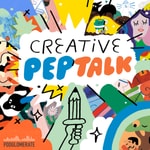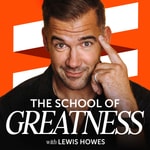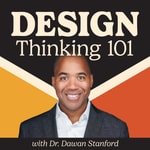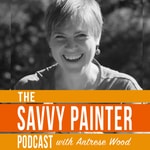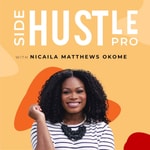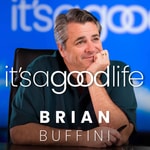Best-Self Management – Détails, épisodes et analyse
Détails du podcast
Informations techniques et générales issues du flux RSS du podcast.
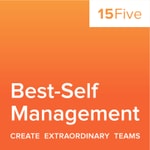
Best-Self Management
15Five
Fréquence : 1 épisode/14j. Total Éps: 46

Classements récents
Dernières positions dans les classements Apple Podcasts et Spotify.
Apple Podcasts
🇨🇦 Canada - management
19/12/2024#88🇨🇦 Canada - management
18/12/2024#73🇬🇧 Grande Bretagne - management
01/09/2024#74
Spotify
Aucun classement récent disponible
Liens partagés entre épisodes et podcasts
Liens présents dans les descriptions d'épisodes et autres podcasts les utilisant également.
See all- https://asana.com/
497 partages
- http://counterweightcreative.co/
230 partages
- https://www.radicalcandor.com/
171 partages
- https://twitter.com/
1349 partages
- https://twitter.com/everforwardclub
181 partages
- https://twitter.com/15Five
45 partages
Qualité et score du flux RSS
Évaluation technique de la qualité et de la structure du flux RSS.
See allScore global : 89%
Historique des publications
Répartition mensuelle des publications d'épisodes au fil des années.
Are you an HR Superstar?
Saison 1 · Épisode 41
mardi 2 mars 2021 • Durée 02:34
Best-Self Management has ended, but don't worry because your friends at 15Five have launched a whole new podcast!
HR Superstars honors you, the brave 21st century HR leader, by highlighting stories from the frontlines of People Ops.
Never miss an episode of HR Superstars by visiting 15five.com/podcast!
On HR Superstars delve deeply into all of the many aspects of what it takes to help companies win by becoming a strategic business partner to the rest of the leadership team. Each episode showcases conversations with HR leaders from some of the world’s largest, successful, and innovative organizations.
Listen to topics like empowering managers to adopt a growth mindset and practice strengths-based leadership, how to have difficult conversations that balance the business performance needs with a high degree of care for people, and how to actually make diversity, equity, and inclusion a part of your cultural DNA instead of just lip service and a PR play.
When your culture gets toxic, management is failing, and performance suffers, it falls to you in HR to address these issues. We’re here to help you to do what matters most—develop your workforce, create a strong employer brand, and become the respected strategic business partner you already are.
You can find us, wherever you listen to podcasts. Let’s do this superstar!
Networking in a Virtual World with Marissa King, Professor, Yale School of Management
Saison 1 · Épisode 40
mardi 5 janvier 2021 • Durée 41:30
Never underestimate the power of a network. Where we each sit in the web of people around us influences almost everything. As today’s guest explains, recognizing the patterns that exist within networks and consciously building them is the key to positively changing patterns as individuals and within organizations.
In This Episode:
- The COVID pandemic’s impact on relationships [1:30]
- Why we should care about strategic networks [3:47]
- Shaping networks for creativity within organizations [8:00]
- How leaders can help people build more beneficial strategic networks [12:48]
- The challenges of building relationships and networks in the world of remote work [17:15]
- Methods for fast-tracking relationships [25:00]
- How to be more present with our digital interactions [26:43]
- Creating connections at an organizational level [31:45]
About Marissa King
Marissa King is a professor of Organizational Behavior at the Yale School of Management, where she developed and teaches a popular course entitled Managing Strategic Networks. Over the past fifteen years, King has studied how people's social networks evolve, what they look like, and why that's significant.
Her most recent line of research analyzes the individual and group-level behaviors that are necessary for large-scale organizational change. King's research has been featured in outlets such as The New York Times, The Wall Street Journal, The Washington Post, The Atlantic, and on National Public Radio.
What Networks Look Like Today
As an expert in networks, King explains how they are changing in the midst of the current pandemic. As is the case in many crises, people’s networks tend to shrink as they look closer for support. This will likely have long-lasting effects and we shouldn’t expect the pre-pandemic networks and relationships to fall back into place when this is all over.
This is important to keep in mind since everyone’s network has a profound effect on them. From health, both physical and mental, to job performance, the web of people we interact with is one of the largest influencers.
Networking for Creativity's Sake
When we continually interact within the same circle, creativity stagnates. Seeking out new voices and diversity to bring within your network and to reach out to naturally leads to new ideas and innovation. Since everyone has an existing network, organizations should consider the value of these when bringing in new people.
As the very nature of many networks has been shaken by the pandemic we need to rethink many aspects of interpersonal interaction. King urges us to focus on having a few deep connections instead of many surface-level ones. It’s not the size of the network that matters. Rather, it’s the quality of the bonds between people that will see us through these tough times.
Quotes:
“Often when people are thinking about their network they’re thinking about who can I get to know. A much better way of thinking about it is where I should be going.” [6:49]
“Having these shared peak experiences where you get together and hotwire relationships - that you’re doing something with a shared mission or a shared purpose - really can invigorate relationships in a way that will carry you for far longer than you would have imagined.” [21:56]
“It’s extraordinarily rare for someone to be listened to and just given the space to be. Allowing that quality to infuse your interactions really can allow a strength of connection that otherwise is impossible.” [25:34]
Key Takeaways:
It takes intentional effort to break out of our natural networks and seek out change. When we are more reflective about who we interact with and the connections we create, more creativity and innovation will follow.
Links & Resources:
Social Chemistry by Marissa King
“Getting Closer at the Company Party”
Follow 15Five on Facebook | Twitter | Linkedin
Podcast production & marketing support by the team at Counterweight Creative
Responding To Burnout At Work With A Science-Backed Resilience Toolkit w/ Dr. Jacinta Jiménez
Saison 1 · Épisode 31
mardi 15 septembre 2020 • Durée 40:09
No one is immune to burnout. It affects even the most passionate and resilient people. The mental and emotional exhaustion of burnout can slowly chip away at anyone’s fortitude. That’s why, especially in times like these, organizations need to support their people and bolster their resiliency however they can.
About Dr. Jacinta Jiménez
Dr. Jacinta Jiménez (Dr. J) is an award-winning Board-Certified Executive Leadership Coach with a 15-plus year career dedicated to the betterment of leaders. She’s worked with leaders in top organizations in Silicon Valley and throughout the world.
A graduate of Stanford University, Dr. J is a sought after expert in bridging the fields of psychology and leadership. As the former Global Head of Coaching at BetterUp, she developed ground-breaking science-backed coaching approaches for helping today’s top organizations, while also leading a global community of 1500+ international Leadership Coaches in over 58 countries.
Balancing Agility with Resiliency
As the difficulties of the current year play out, the dual qualities of agility and resilience come up time and again. Certainly, it is important to lean into agility during unpredictable times.
We need to shift as the ground beneath us changes. Yet, to do this at the expense of supporting the protective factors of resilience, causes burnout to become a serious risk.
Making The Shift Towards More Resiliency
We’re all being tested by difficulties, particularly uncertainty. Dr. J recommends combating this by focusing on what remains in our control. Staying grounded while the world around us spins seemingly out of control is easier said than done. The fix is not trying to control the outside world. Rather, it’s focusing on what we still have power over - our words, attitudes, and mindset.
When we push purely for productivity, we end up damaging ourselves and the people we rely on. We need to make the cultural mindset shift that it’s okay to rest. Nobody can hustle nonstop. Ultimately rest and recovery are needed to fuel the productivity that we seek.
In This Episode
- The important distinction between agility and resilience [1:25]
- The three symptoms of burnout [3:58]
- How companies and organizations can support resiliency in difficult times [7:24]
- The payoffs of leveraging the art of leisure [10:10]
- Managing stress before it develops into burnout [14:42]
- How organizations can encourage their people to balance agility with resilience [18:25]
- Questions that team leaders should be asking their people [22:15]
- Encouraging people resistant to accepting the need for leisure [26:58]
Quotes
“Now, more than ever, we need to make sure that we’re putting more into our resilience piggy-banks.” [3:23]
“We’re entering into this new world of work and life, but a lot of us are still hanging on to outdated formulas of what it takes to be resilient and successful over the long-haul.” [7:53]
“Stress is not bad. Stress is good in small doses. It stimulates growth. We need stress. But you can’t have chronic stress without recovery.” [11:18]
“The most important asset you have to make an impact on this world is you. If you fail to invest in yourself, you run the risk of damaging the very tool you need to make the impact.” [15:15]
“What burnout comes from is when the requirements of our work mismatch with our capacities as a human.” [25:59]
Key Takeaways
Nobody is immune to burnout. Simply trying to avoid it can actually cause it.
There are tools to strengthen resiliency in the workplace that will lead to more productivity in the end.
A central part of this is leveraging leisure, something that managers should encourage.
Links & Resources
Find Dr. Jacinta Jiménez online
Follow 15Five on Facebook | Twitter | Linkedin
How Procore Constructed A Positive Company Culture That Was Built To Last w/ Steve Zahm
Saison 1 · Épisode 30
mardi 1 septembre 2020 • Durée 45:20
What does company culture have to do with business results? At 15five, we see an incredibly strong link between the two. So does today’s guest who has used culture and values to build a pool of enthusiastic employees who are motivated to do their best work every day.
About Steve Zahm
Steve Zahm is the president and Chief Culture Officer of Procore where he’s responsible for human resources, learning, development, and facilities and real estate. Steve is focused on the creation and scaling of positive workplace culture as a sustainable competitive advantage for achieving superior business results.
Why Culture is a Strategic Advantage for Business
As the Chief Culture Officer, Steve works to make his company’s culture one of its greatest assets. He sees an undeniable connection between the culture of a company and its success.
Good workplace culture pays back in so many ways. It attracts the best and most enthusiastic talent. When a company has a positive culture, employees are easier to attract, maintain high levels of engagement, and create a competitive advantage.
Putting Your Values Into Action
Stating your values isn’t enough. You need to take deliberate action to ensure that your stated values prosper within your company. You have to hire and fire according to your values. When managing your employees, put the language of your workplace culture front and center. Ultimately, training in accordance with your values ensures that everyone knows how to do their best work in alignment with the company’s vision.
When your workplace culture is able to do this, your people will become strong advocates of your values. This naturally leads to a strengthening of these values into something larger than the founders could have done on their own.
In This Episode
- The role and value of Chief Culture Officers [0:50]
- Signs that your culture is working [7:23]
- The attributes of a positive culture [9:18]
- Intentionally setting up company values to be acted upon [13:08]
- The dangers of not operating according to your stated values [20:08]
- How founders impart their personal values to their company [21:50
- How workplace culture can evolve for the better as a company scales up [27:07]
- The power of strong workplace culture to respond to crisis [28:56]
- Practical steps to creating an inclusive work environment [33:33]
Quotes
“People don’t realize that businesses invest in culture because culture improves the business.” [1:56]
“With culture, not only do you have to speak the language, you have to do the language. You have to do things that are in accordance with your values.” [21:07]
“A crisis is a horrible time to find out what your values are as a company. It’s a great time to have your values as a company.” [30:06]
“One of the goals to enable the success of the business has to be letting my people do their best work. Every single day I should be pushing to get every employee that can into that state of flow.” [36:30]
Key Takeaways
1. Having a clear company vision will lead to a more engaged and motivated workforce.
2. A strong company culture will differentiate your company and make it more robust when there is a crisis.
Links & Resources
Find Steve Zahm online at Procore
Check out Procore’s free courses
Learn about Procore’s social impact work
Follow 15Five on Facebook | Twitter | Linkedin
Links & Resources
Understanding Your Strengths To Build Stronger Teams w/ Darren Virassammy
Saison 1 · Épisode 29
mercredi 26 août 2020 • Durée 42:41
Meaningful organizational change comes when we focus on what’s right with people rather than what’s wrong. This means understanding that not everyone thinks and operates the way that you do. When we appreciate these differences, we see them as assets that create stronger leaders, teams, and organizations.
Darren Virassammy is a TEDx speaker and the Co-Founder and COO of 34 Strong. His team believes that everyone deserves a great place to work and that any workplace can be great. As a leading expert in the global workplace engagement community, the 34 Strong team leverages a strength-based approach to human development to create massive shifts within organizations.
When you understand how people in your organization learn best, you can identify how to best apply their strengths. Everyone thinks and processes information and ideas differently. Understanding this allows everyone to show up at their best. This creates a more effective and supportive work culture.
To breathe life into your strengths, Darren urges leaders to guide their people to identify what exhausts them as well as energizes them. To create the foundation for great workplaces, leaders should support an environment of trust, compassion, stability, and hope.
How can you recognize the individual strengths of your people? Let’s talk about it in the comments on the episode page!
In this episode
- What happens when we view differences as strengths
- How team-awareness starts with self-awareness
- The power of empathy to eliminate frustration
- Encouraging your team to pursue what gives them energy
- Leveraging the team’s strengths to succeed in challenging times
Quotes
“It has to start with how we look at ourselves. It’s the self-awareness to team-awareness when we’re working on the culture side. But we have to start with self-awareness.” [7:35]
“We have so many unknowns that are coming at us, whatever comes at me, whatever comes at our team, I just want to make sure that people’s minds and emotional energy is showing up at the strongest level that it possibly can.” [18:49]
“If you want to go fast, go alone. If you want to go far, go with others. Our differences can be our greatest advantages.” [38:59]
Links
Follow 34 Strong on Facebook | Twitter | YouTube
Strength’s Based Leadership by Tom Rath
How Twitter Thrives As A Fully Remote Org w/ CHRO Jennifer Christie
Saison 1 · Épisode 28
mercredi 19 août 2020 • Durée 36:06
In March of 2020 when COVID-19 hit, many organizations updated their remote work policies at least temporarily to allow people to work from home. Twitter made headlines in May by announcing that a remote work option would be available to their 5,000+ full-time workforce, forever! 15Five CEO, David Hassell interviews Twitter’s head of HR to discuss what Twitter has learned from making this shift after several months.
Jennifer Christie is the VP of People and Chief Human Resources Officer at Twitter. She leads the global people team and works with the executive management team and board of directors to support the strategic direction of the company. Jennifer oversees talent acquisition and management, diversity and inclusion, people systems and analytics, organizational and performance management, and training and development.
Even before COVID, Twitter allowed employees to work remotely as part of their larger strategies around decentralization and Diversity & Inclusion. Now as a fully remote organization, in order to maintain the camaraderie that existed in the office, Jennifer and her team find ways to maintain deep connections between “Tweeps” in the remote space. Additionally, they have shifted their benefits plan to support people’s health and well-being in a new reality where gyms are closed and people need certain staple equipment to be successful at home.
Hopefully, in the next year or so, the health risk will abate and people will begin returning to the office once it is safe to do so. Twitter, like many other businesses, are planning a “return to office” strategy. At Twitter, offices will be available for the people who want to return to a shared physical working space. For now, Jennifer shares how to maintain social and emotional connections without a physical office and why it’s imperative that companies start planning for this readjustment now.
How has Covid created new roles for HR within your organization? Tell us in the comments on the episode page!
Also in this episode:
- Going fully remote and returning to the office
- Helping employees with resources, setting boundaries, and remote benefits
- “Camp Twitter” - Supporting parents when school and camp are closed
- Diversity & Inclusion at Twitter - a comprehensive strategy including transparency, and setting goals that optimize for D&I efforts
- HR as strategic partner to the Board and the rest of the C-suite
Quotes
“If we want to be able to attract and retain this growing employee base that is growing very rapidly, we’ve got to start shifting our culture. We have to shift how we work if we’re going to be inclusive of that work style.” [0:57]
“We want to try to engineer a different experience so people don’t feel compelled to come back to the office if they don’t want to because they feel like they’re missing out on something.” [13:33]
“I don’t think you can nail inclusion if you don’t have a diverse workforce. Decentralization is a key driver of that.” [27:05]
Links
Washington Post: “Twitter Employees Don’t Ever Have to Go Back to the Office (Unless They Want to)”
Keeping Our Employees and Partners Safe During #Coronavirus
Follow 15Five on Facebook | Twitter | Linkedin
Season 5: Resilience In Turbulent Times
Saison 1 · Épisode 28
jeudi 6 août 2020 • Durée 02:47
Best-Self Management is returning for Season 5 on August 12th!
In this season, David and Shane will be talking with HR leaders from some of the largest, most successful, and most progressive companies in the world, including Twitter, Okta, and Siemens. We'll discuss culture, people strategy, and how to thrive during turbulent times, for which there is no roadmap.
On the Best-Self Management podcast, we explore the brave new world of bringing your whole self to work. Best-Self Management proposes that if leaders build cultures and institute practices that support people in being and becoming their Best Selves, then high performance and uncommon loyalty is the result.
What is Best-Self Management? A proven, research-based methodology proposing that when leaders build cultures that support people in being their best selves, high performance and engagement naturally result.
Who are the hosts? David Hassell and Shane Metcalf have a uniquely healthy and productive cofounder relationship which they have leveraged to build 15Five into an 8-figure business, with a stellar culture that’s rated #3 in the country on Glassdoor!
Why should I listen? You love interviews with top business and HR leaders who are revolutionizing our understanding of human performance and explain how to build thriving cultures that succeed by guiding every employee towards greatness.
LinksHow Do We Operationalize Leaning In To Empathy? w/ Rajkumari Neogy
Saison 1 · Épisode 27
mardi 4 août 2020 • Durée 32:26
Diversity, equity, inclusion, and belonging are receiving more attention these days, with many more companies asking, “How can we create more equity and a sense of belonging?” But have you ever considered the negative—exclusion? By shutting people out, consciously or not, we create shame and trauma. This is a powerful force that affects all aspects of society, not just work. It has become increasingly important to examine the root-causes of how current dynamics of exclusion began and the science behind the way we think, feel, and operate in the world.
Today, we welcome Rajkumari Neogy back to the show—an epigenetic coach and executive consultant focused on the intersection of neurobiology, culture, and empathy in today’s business world. Rajkumari believes that passionate self-reflection coupled with dedicated curiosity defines true leadership. Specializing in the tech sector, S/He has trained leaders at high-powered organizations, including Google, Facebook, and Salesforce.
In this episode, Rajkumari helps us examine the role of business leaders in creating meaningful inclusivity. The root of the solution lies in empathy. Building empathy into corporate culture will involve some fundamental shifts. Yet, making these changes will lead to meaningful progress as empathy leads to collective empowerment. Fostering this within an organization will lead to your people working harder for each other.
As someone who studies epigenetics, Rajkumari stresses that no one is immune from the trauma and mindsets of their ancestors. This has resulted in deep-seated systemic exclusion. Doing the hard work of addressing these multi generational beliefs and traumas will make it possible to have the difficult conversations that are needed right now.
How can you create the safety needed for difficult conversations within your organization? Let’s talk about it in the comments on the episode page!
In this episode
- Leaning into empathy to create a more inclusive workplace and society
- Why exclusion forms the foundation of racism
- How the mindsets of our ancestors still affects everyone today
- What happens when we break out of the cycle of blame
- Tools and techniques for creating more mental balance and empathy
Quotes
“We have to really acknowledge and honor that which has been excluded and re-invite that back into this sphere of inclusion that we’re creating for everyone, including ourselves.” [4:16]
“Racism is severe, repetitive, horrific, exclusion.” [11:02]
“We need to start to speak significantly more relationally. That ability to speak relationally will rewire the right hemisphere and strengthen our ability to be uncomfortable in difficult conversations.” [23:56]
Links
Follow Rajkumari on Linkedin | Instagram | YouTube
“On Being with Krista Tippett” - Robin DiAngelo and Resmaa Menakem In Conversation
The Polyvagal Theory by Dr. Stephen Porges
Moshe Szyf: How Do Our Experiences Rewire Our Brains And Bodies?
White Fragility by Robin Diangelo
Listen to Part One of our conversation with Rajkumari Neogy
Facilitating Transformation For Every Manager At Your Company w/ Emily Diaz & Jon Greenawalt
Saison 1 · Épisode 26
mercredi 22 juillet 2020 • Durée 42:39
In recent years, we’ve seen the employee engagement and performance software market explode. Along the way, we’ve come to realize that success takes more than just providing people with the software tools they need. It’s education and training that makes the difference, and a deep commitment to having organizations transform. Meaningful transformation only comes when the deep and difficult work happens. Today, we’re talking with two of our employees who are helping other organizations train their managers to be far more effective.
Jon Greenawalt, our Chief Performance Officer, brings over 20 years of global, cross-industry consulting experience to help develop leaders and teams through progressive leadership and management development programs. Jon is the former Chief People & Culture Officer at SharkNinja, where he built the Talent Development function, trained over 500 leaders and managers during his tenure, and implemented 15Five across the entire 1,600 global full-time employee population.
Emily Diaz is our Director of Transformational Services, a division she created after identifying the need for organizations to teach ‘vital skills’ to their people, skills which in turn supercharge the impact of 15Five’s performance management software. Since joining our founding team 7 years ago, she has served as advisor, trainer, and coach for companies across all industries — including Visa, Tesla, and Citrix. Emily’s experience across domains informs the creation of unique and powerful programs that train core professional competencies.
In this episode, we discuss the future of performance management that incorporates intuitive, empowering software, but also services and ongoing education. We've realized that helping employees and managers form new habits and skills leads to high-performing and healthy organizations. By being transformative in this way, meaningful changes occur that result in lasting positive change.
Professional services are usually about helping companies succeed with a (software) product. These do provide help with how people use the software to improve their work and possibly even to contribute more. But that’s largely a transactional process. Transformational Services is a partnership whereby people are taken through a process where they permanently change their mindset and behaviors in order to thrive.
This is often hard work. It begins with a desire to grow and from there a thorough examination of old practices and mindsets. Hard truths will be confronted. People will stretch beyond the familiar. In the end, when people realize that work can be a source of satisfaction and personal growth, they’ll build a better business environment.
What transformative changes would you like to see in your company? Let’s chat about it in the comments on the episode page!
In this episode
- What transformation actually means for individuals and a company
- Building an environment of positivity by deconstructing old mindsets
- How people learn including repetition and feeling discomfort
- Why failures should be celebrated
- Reframing soft skills as vital relational skills required for any high-functioning organization
Quotes
“We’re a mission-driven company. 15Five is not just in the business to create a widget, a tool. We’re actually here to transform the world of work.” [4:38] (Emily)
“Transformation is hard work. Yet it’s important work. The benefit of it is, even though it may be challenging to have that breakthrough and move yourself to the next level, it’s an amazing experience.” [13:48] (Jon)
“It has to be okay to grow. The best environments are the ones that make it cool to grow. That’s what it’s all about. We’re never done growing.” [19:26] (Jon)
“There’s a spectrum where you need to learn how to relate to your people in a way that still puts the responsibility of their own growth with them.” [34:10] (Emily)
Links
Learn more about our transformational services
Why 2020 Is 'The Year of HR': A Conversation with Josh Bersin
Saison 1 · Épisode 25
mardi 14 juillet 2020 • Durée 36:52
Perhaps now more than any other time in History, demands on People Operations roles are incredibly high. Handling just the administrative side of HR while establishing a remote workforce can be a full-time job, let alone the all-important human element that requires your resources and attention. Because the true power of human resources lies in unlocking the potential of every employee, many HR leaders are discovering or refining new skills in 2020: “The Year of HR.”
Josh Bersin founded Bersin & Associates in 2001 (later acquired by Deloitte) to provide research and advisory services focused on corporate learning. He expanded the company’s coverage to encompass HR, talent management, talent acquisition, and leadership and became a recognized expert in the talent market. In 2019, Josh also founded the Josh Bersin Academy, an online professional development resource that has become the “Home for HR” in recent months.
Right now, in addition to staying in business during an economic downturn, companies are struggling to meet the demands of a workforce coping with a rapidly evolving world. Dealing with a global pandemic and escalating conversations about race and inclusion, every company must ask itself what type of citizenship they want to practice. This begins with how they treat their people, and then echoes out into the marketplace and beyond. HR has an ongoing role to play in aligning the mission of the company with the mission of its people—this not only determines how employees perform but what kind of citizen the company will be.
In 2020, companies are working proactively to create a sense of stability and safety for people, Josh sees the role of HR expanding more and more to fill this need.
How have you seen the role of HR evolve in your company? Let us know in the comments on the episode page!
In this episode
- How current trends in HR are leading to more workplace creativity
- Creating values alignment between companies and their employees
- The economic factors that actually matter right now
- How companies can provide stability for their people in unstable times
- What companies can do to promote equity in the workplace and society
Quotes
“Companies exist in a world of societal issues. Every employee and every customer has a perspective on the role they want to play in society.” [9:21]
“It always pays off to think more about your role in society. It seems to always make the company more successful.” [18:39]
“I think DNI is a critically important program, but I hope it isn’t getting in the way of the real issue of pay transparency, pay fairness, and talking about these issues so people can share their fears and concerns.” [24:46]
“2020 is the year of HR in every single company. We are being asked to take on heroic roles…. Try to enjoy this as stressful and difficult as it is.” [38:08]
Links
Follow Josh on Twitter | Facebook | Linkedin
White Fragility by Robin DiAngelo
Follow 15Five on Facebook | Twitter | Linkedin
